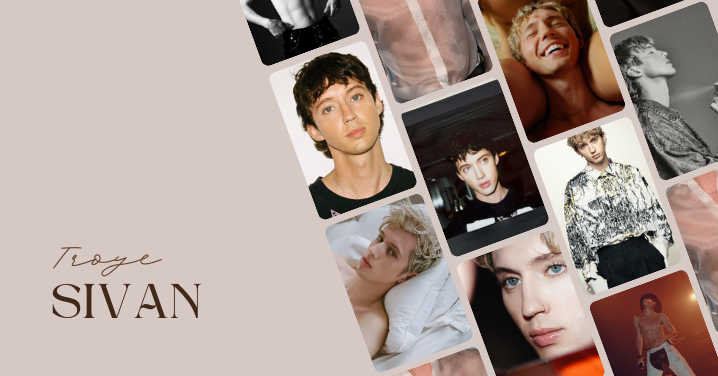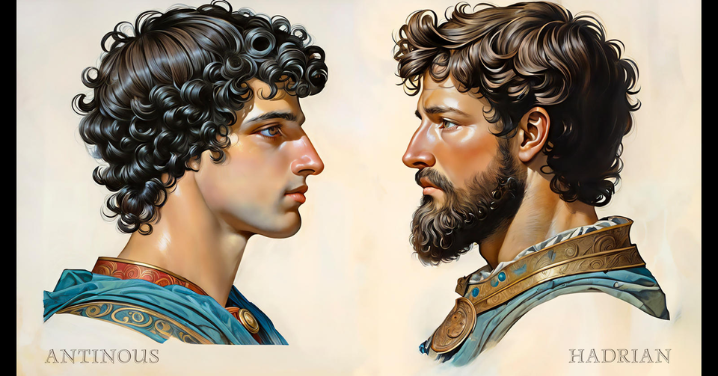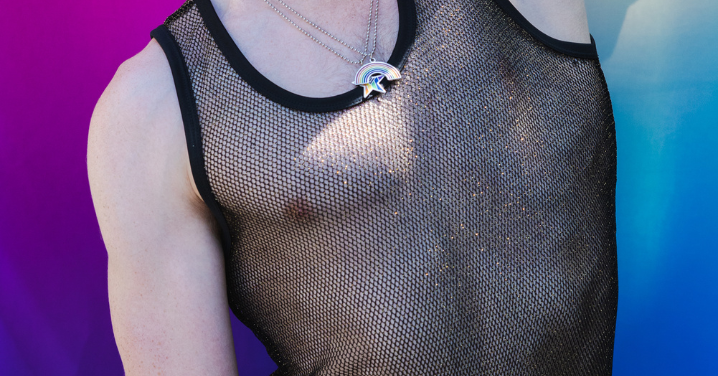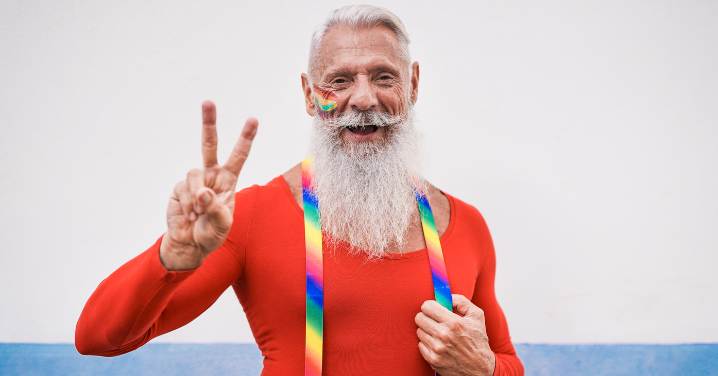
Ageing is something that comes for all of us. There’s no way around it. But for those in the LGBTQ+ community, getting older can often feel like a different experience. The issues we face aren’t just the physical signs of age or the inevitable aches and pains. It’s about how society views us, how we fit (or don’t fit) into a world that’s constantly obsessed with youth. It’s about the spaces we occupy, the relationships we’ve had, and the feeling that, sometimes, the world just forgets we exist once we pass a certain age.
Growing older isn’t easy for anyone, but for older LGBTQ+ individuals, the experience can be especially isolating. Society often tells us that youth is everything – that the most valuable people are the ones who look a certain way, who have a particular energy. And when we don’t fit that mould, it’s easy to feel invisible, irrelevant, or even abandoned. This is particularly true for older LGBTQ+ folks who have lived through the difficult and painful years when society wasn’t as accepting as it is now. Many of us remember a time when coming out meant risking everything: jobs, relationships, even our safety.
As we grow older, we can’t help but feel the weight of that history. Some of us carry the scars of a generation that had to fight tooth and nail just to be seen and heard. And yet, despite all the progress we’ve made, there’s still this idea that the LGBTQ+ community is, in some ways, a youth-driven space. We celebrate Pride, we focus on the young faces, the influencers, the voices that are just starting to make their mark. But what about the older generation? The ones who fought those battles before, whose shoulders the younger ones stand on today? Where do they fit in when the world has moved on, and the focus has shifted elsewhere?
There’s a specific kind of loneliness that comes with this. When you’ve spent years carving out a place for yourself, only to watch the spotlight shift away, it can feel like the world has forgotten you. The connections that used to feel alive and full of meaning may fade, or worse, disappear entirely. Family, for many of us, is a complicated subject. Not everyone is lucky enough to have the unconditional support of biological relatives, and for those of us without that, forming our chosen families was everything. But even those relationships can feel strained when we’re no longer seen as the young, vibrant member of the group.

There’s also the reality of discrimination, which is not something that magically disappears with age. For some of us, coming out was just the start of the fight. The journey doesn’t stop once we’ve embraced who we are. Ageism is rampant in many areas of life, and for older LGBTQ+ individuals, it often comes with the added layer of homophobia or transphobia. It’s one thing to be young and queer in a progressive, open-minded society; it’s another to be an older queer person still navigating systems that weren’t designed for us, still dealing with the residual effects of years of societal rejection.
It’s heartbreaking, in a way, to think about how many older LGBTQ+ individuals feel the need to stay quiet, to hide parts of themselves just to avoid the discomfort of being seen as ‘other.’ And, in many ways, we’ve become conditioned to accept this quietness, this erasure, as a normal part of life. But that doesn’t make it right.
I’ve spent a lot of time thinking about the ways in which we can do better for those in our community who are older, who are finding it harder to be heard. It starts with visibility – recognising that just because someone has a few more years on the clock doesn’t mean they’re any less valuable, any less deserving of love, respect, and acceptance. In fact, their life experiences, their wisdom, their journey, should be celebrated. We need to create spaces where older LGBTQ+ individuals can feel seen, heard, and appreciated for all they’ve done and continue to do.
This is about more than just providing care or resources. It’s about making sure they have a voice in the conversation. It’s about making sure that Pride, the symbols of queerness, the ongoing discussions about LGBTQ+ rights, reflect the entire community – young and old, trans and cis, queer, lesbian, gay, and everything in between. We can’t just gloss over the older generations who helped get us to where we are today. They are our history. They are our present. And they are a crucial part of our future.
And we have to talk about the importance of connection. Ageing in the LGBTQ+ community isn’t just about feeling invisible or alone – it’s about not being given the opportunity to connect with others who understand you. We need spaces where older LGBTQ+ people can share their stories, their struggles, and their joy. We need to make sure those who feel left out have a place where they belong, a place where they are not an afterthought but an integral part of the ongoing conversation about queer identity.
So, what can we do to help? It’s actually not as difficult as it seems. It starts with something simple: kindness. We can make an effort to engage with the older LGBTQ+ individuals in our lives. We can listen to their stories, honour their experiences, and offer them the respect they deserve. We can also work to create more inclusive spaces that celebrate people of all ages, where older members of the LGBTQ+ community feel as valued as the younger ones. The world needs their wisdom, their perspective, and their history, and we must do everything we can to ensure they aren’t sidelined.
We can also support organisations that work to address the specific challenges faced by older LGBTQ+ people – whether that’s through advocating for better healthcare, creating social programmes, or supporting policy changes that promote equality for all ages in the queer community. These efforts are critical, but they can’t happen without collective action, without the understanding that older LGBTQ+ individuals are just as much a part of our community as anyone else.
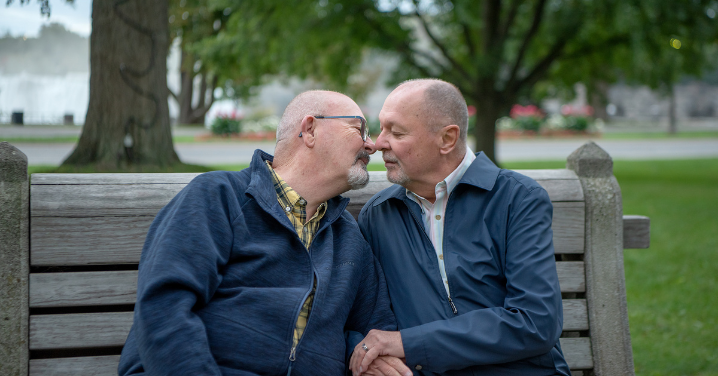
The truth is, no one should have to feel invisible because of their age or identity. And it’s our responsibility, as a community, to fight against this erasure. We need to advocate for a world where all people, regardless of their age or background, can feel seen, heard, and loved. We need to foster a culture of empathy, understanding, and connection. In doing so, we can create a future where ageing in the LGBTQ+ community is not about isolation or invisibility, but about dignity, respect, and celebration.
The fight isn’t over. It never really will be. But as we move forward, let’s make a promise to ourselves and to those who came before us: let’s make sure the road we walk on is one that’s wide enough for everyone, regardless of how old they are.
Now, it’s up to us. If we truly want to honour those who have paved the way for us, we must stand up, reach out, and make space. The older LGBTQ+ community has so much to offer. Let’s help them see the value they have in the world, and let’s honour them for all they have done. Together, we can do better. Together, we can be better. Together, we can make sure that everyone, regardless of age, has a place in this community. Let’s keep the fight alive, for them, for us, and for the future.

